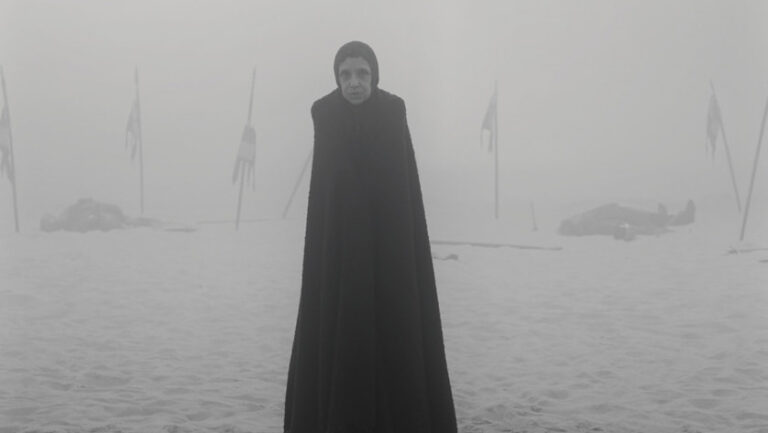The Allure of Power in Our Finest
Between my two citizenships—Israeli and American—I’ve lived and ached through more demoralizing elections than I’d like to recall. As I write these words, Israel is heading toward its fifth election in four years, and the United States is in the midst of a heated midterms runoff. With every new round, I feel my anxiety and worry skyrocket as my hope for the kind of future I want for my two countries hangs precariously in the balance.
For years, I felt unable to keep up with the political arena, so confused by the inner workings of different countries’ systems and baffled by the speed of current events. But in my thirties, I made it my goal to become more involved and informed. I started reading the news, asking questions, and following polls and public opinion. And yet, I find that the more I learn about the world of politics, the less I trust that anyone involved is actually voicing their truth. In an attempt to justify his choice to vote for Trump in 2016 and 2020, a friend once told me, “You can’t listen to him when he says those terrible things. He doesn’t mean them.” While this is a horrible reason to vote for a deranged aspiring dictator, and an argument more appropriate for excusing the behavior of a toddler throwing a tantrum, I believe this friend wasn’t entirely off the mark. Succeeding in politics involves hitting the talking points one’s base is eager to hear, and there comes a point when the line between what leaders truly believe and what remarks get them elected must become blurry.
This murky, hopeless, disenchanted life view is at the heart of Ariel Horowitz’s debut novel Our Finest (which came out in Hebrew last year). The novel follows three generations in a family of religious Zionists, a lesser-discussed sect of Israeli Jews who are observant and faithful but not as strict or as closed-off as Orthodox Jews: Menachem, a veteran politician who served for years as the second-in-command to a former head of Israel’s religious Zionist party; his son Yoav, a renowned reporter drawn to the fame and attention of public service; and his grandson Eitan, an unambitious weed dealer.
As Menachem tries and fails to come to terms with the fact that his days of carrying any kind of meaning to his party are over, veering back and forth between attempting to hold sway once more and giving in to the soporific comforts of retirement, Yoav is seduced by the lime lights of leadership. Leaning into the theatrics of many a politician, he resigns without warning from the newspaper he cofounded, and proceeds to spread lies and half-truths about his family and personal history in an attempt to win public support.
Yoav wins the primaries, but is haunted by one crisis after the next as his fraught family dynamics and fictitious claims come to light. Menachem, long considered a has-been and a joke, is favored by the party to take over for his wayward son, creating a rift between the two. Both men’s motives are constantly put to the test. Yoav’s platform revolves mainly around the fact that religious Zionists in Israel only receive roles related to faith-related policies; he claims to aspire to a wide-reaching involvement in current affairs, but in his life he shows a dwindling interest in everything from his journalism to his children. He skips synagogue visits on Shabbat and only spends time with his family when he can post about it on social media.
Menachem, for his part, seems to care deeply about the party and the general political sphere. But his passion for public service is clearly informed by his need to remain vital and necessary in a sort of extended midlife crisis. He is turned off by the fame that appeals to his son, drawn instead to the sense of being deemed important and knowledgeable by his peers. He is dispirited by some of his grandchildren, who have distanced themselves from their religious upbringings, and remorseful that he didn’t push his way to the top when he still could.
As the two men struggle to maintain some sort of power over the country and their households, the emptiness of their beliefs comes to light. Their identities are marked by the yarmulkes on their heads and the tomes of scripture on their shelves. They continue to keep kosher and observe the mitzvahs for all to see, but very little in their conduct implies any true zeal for the Jewish faith or even for the State of Israel. They have been sucked so dry by their public service that they have lost whatever passion they once had for creating true change.
The only character who appears to have his integrity fully in tact is Eitan, who didn’t go to college and whose greatest accomplishment is in leaving no paper trail behind his drug deals. When the newspaper his father abruptly quit uncovers Eitan’s line of work, it lands him in jail and brings about the downfall of Yoav’s political career, yet Eitan remains, in my mind, clean and pure of all ulterior motives. He refuses to participate in his father’s self-promotional cult of personality, conducts his business with people of all sects without discrimination, and follows his own desires rather than the norms and trends of his community.
As I read this book, I was struck by how empty and self-serving every character’s motive appeared, when given enough time to reveal them. The point of having power and influence to them is having power and influence—not in the name of a greater cause but in the name of one’s ego. The novel in superficial analysis seems to be painting a picture of Religious Zionism as shallow and cynical, but in fact I believe Horowitz’s message is far more sweeping: regardless of what we believe in, when the personal reward is great enough, we are all in danger of losing our religion.


